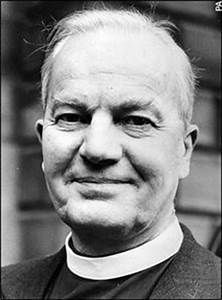
Tertullian and the Heretics
Students:
Greetings. Attached here you will find the Tertullian reading for Thursday.
Take care,
Brad
- Details
- Written by Brad Green Brad Green
- Category: Recommended Reading Recommended Reading
- Published: 10 September 2018 10 September 2018
- Hits: 5406 5406
Origen, On First Principles
Students--Here you go! The first few sections from Origen, On First Principles.
- Details
- Written by Brad Green Brad Green
- Category: Recommended Reading Recommended Reading
- Published: 06 September 2018 06 September 2018
- Hits: 5576 5576
Thomas Torrance and Realism

I recently wrote a blog post for the web-site "Audi Alteram". Here is the link to the piece I wrote on "Thomas Torrance and Realism".
When one reads a little philosophy, one discovers that the term “realism” can be used in a number of ways. It can mean:
(1) the idea that there is a real world outside of us, and this world, is what is independently of what I think about it. That is, the world is what it is. I don’t “constitute” reality.
One can also use the term “realism” to mean . . .
(2) that I (or you) can pretty much know the world as it is. This does not mean that my knowledge is exhaustive, but that I can have real if limited knowledge of the world—and I know the world pretty much as it is.
When some speak of realism they might also be engaging . . .
(3) the question of universals, and may want to argue for “Platonic Realism” or “Aristotelian Realism,” etc. When persons are speaking in this third sense of realism, they are concerned with questions like: Do universals exist before particular things? Perhaps in particular things? Or perhaps after particular things (say, in the mind, as I reflect on a particular thing).
I was recently reading Thomas F. Torrance’s Transformation and Convergence In the Frame of Knowledge: Explorations in the Interrelations of Scientific and Theological Enterprise. In his chapter, “Truth and Authority in the Church,” he pens some of the most helpful comments on “realism” I have seen (especially in terms of the first sense above). In the first of ten theses he writes:
“The truth is that which is what it is and that which discloses what it is as it is. The concept of truth enshrines at once the reality of things and the revelation of things as they are in reality. Truth comes to view in its own majesty, freedom and authority, compelling us by the power of what it is to assent to it and acknowledge it for what is in itself.”
A couple of things are worth noting. First, truth is simply “what it is.” With truth we are dealing with “things as they are in reality.” But second, for Torrance, truth is something which “discloses what it is as it is.” While in a number of his theses in this chapter Torrance is speaking about God as the truth, it seems that Torrance is happy to say that not only God but truth more generally “discloses what it is as it is”. This is something which only really, in my view, makes sense in the light of Christian truth claims and convictions. That is: the world is created, governed, and sustained in such a way that it discloses itself to knowers in that world. This reminds me of a turn of phrase from Robert Sokolowski’s Introduction to Phenomenology. Sokolowski can speak of the “dative of manifestation.” (In case-based languages the dative case is generally the case of the indirect object, and hence one also uses the preposition “to” when dealing with the dative case: “to the boy,” “to the friends,” etc.).
On this sense in which reality virtually “desires” or is “compelled” to reveal itself, Torrance writes in thesis five: “what [truth] is in itself is the compulsive ground of our recognition of it and the inexhaustible source of our conceiving it.” (Torrance, Transformation and Convergence In the Frame of Knowledge, 304). Likewise, in thesis six Torrance can write: “the reality shows itself and thrusts itself upon us in accordane with its own nature.” (Torrance, Transformation and Convergence, 304).
- Details
- Written by Brad Green Brad Green
- Category: Recommended Reading Recommended Reading
- Published: 22 August 2018 22 August 2018
- Hits: 3241 3241
Rod Dreher and the Benedict Option
Rod Dreher's original essay on the "Benedict Option"--from several years ago.
- Details
- Written by Brad Green Brad Green
- Category: Recommended Reading Recommended Reading
- Published: 29 April 2018 29 April 2018
- Hits: 3328 3328